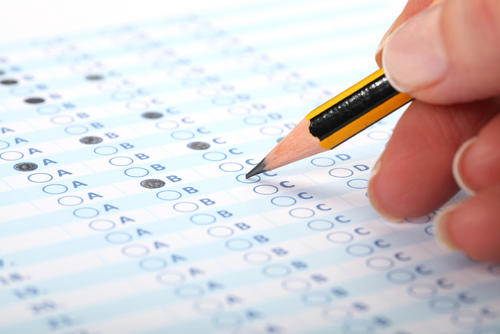How to Prepare for the IELTS Reading Test?
The reading section of the IELTS Test assesses your English reading skills. It consists of 3 texts and 40 questions which you have to answer within 60 minutes. Don't worry, you won't need any specialised vocabulary, even though the text may look 'scientific'. The questions won't test your scientific knowledge! Here are some tips and tricks that will help you be successful on the test day.

Before you start answering the questions
- Remember you won’t be ‘reading’ the way you would normally do in your spare time. You should try to extract relevant information from the texts as quickly as possible.
- Survey the text – this is just a fancy way of saying you should look at the text quickly, asking yourself a few questions, e.g.: "What’s the title?", "Are there any pictures to help me?", "How long is it and does it go over to the next page?".
- Read the instructions very carefully – this is especially important for sentence completion tasks, with a set number of words you may use.
- Skim the text to get an idea about its general structure, and identify what each paragraph or section refers to. There are lots of different ways to do this (e.g. read the introduction + read the first couple of sentences of each paragraph + read conclusion). Find a way that suits you best.
- Read the question or set of questions. Use what you learnt from skimming to go to the correct part of the text and find the answers.
- Scan the paragraph(s) to find the answer.
- Make sure you’ve understood the information correctly.
- Write the answer directly onto the answer sheet. There’s no extra time at the end.
Answering the questions
- Make sure you know the different possible types of questions (e.g. multiple-choice, True/False/Not Given, matching, summary/sentence/table completion, etc.).
- Practice answering all types of questions, especially T/F/NG, matching headings and summary completion, as these are the most frequent types.
- Make sure you understand the difference between False/No [i.e. the text contradicts the statement in the question] and Not Given [i.e. there is no information on the statement].
- Matching headings – make use of the topic sentence(s). Remember headings are like ‘super’ topic sentences.
- Summary completion – make sure you’ve used the correct number of words and that the sentence you’ve completed uses correct grammar.
- Synonyms/rephrasing – remember that the vocabulary used in the question is unlikely to turn up in the text, so think about it and look for synonyms.
- Timing – keep to the suggested times for each text (20 mins). Work it out – if you spend just 5 extra minutes on the first 2 texts, you will run out of time for the final text!
- Don’t get bogged down – if you can’t find the answer to a question, just skip it and move on.
Also check out these tips for the IELTS Reading Test.

Marking the text/recording your answers
If you’re not sure about an answer, make a note (e.g. Q5: E?) so that you can go back to it quickly if you need to. Also, never put 2 answers on the answers sheet for one question and don’t leave blank spaces on answer sheets, as you might then put the following answers in the wrong place! Write the answer in lightly and put a question mark, then go back and check if you have time at the end.
Read lots of different types of articles and texts before the test. Don’t leave all your reading to the day of the test! There’s plenty of free material to help you prepare on the Take IELTS website.


